Just what it feels like to get your work on the Touring Circuit
Anyone working in socially engaged work, in work that is a call to arms for equality in the arts, and particularly anyone working in Disability Theatre feels both a sense of responsibility to 'get it right' and also to create a piece of work that stands on its own artistic merits. Anyone making theatre does so because they want an audience to have a fantastic experience, and to see an exemplary piece of work. Even 27 years into my career, it always feels like so much rests on the work. Broadly in wider arts, there is an unspoken fear that disability work brings extra risk with it - 'will people want to see it, will it be any good, does it have a place in our building'.
At my company, Little Cog, we are forging ahead with a mission to bring lost, hidden and mis-told stories of British Disabled people to the stage, in the form of new writing and new work. There is a rich history of disability culture and disability theatre in these islands, and yet we have mourned the lack of opportunities for disabled people to lead the way on our main stages for decades. In fact, more than mourned it, we've campaigned, we've consistently made work and we've battled to bring about change in the opportunities afforded disabled practitioners and using disabled-led models of practice.
Our main stages are missing out on extraordinary stories and phenomenal practice, so deeply ingrained are the myths, stereotypes and tropes about disabled people, not just within the stories, but in the perceived incapacity of disabled professionals in the institution of theatre itself. There are myths that disabled professionals need additonal professional support, mentoring, guidance and development. Actually many of us are accomplished award winning artists who just need their access requirements met to be able to work, to create an equitable environment and to break down the attitudinal lack of opportunities.
And if you're a disabled practitioner and in the North, or on a series of one night touring shows - forget getting a national review. Forget getting mainstage programmers, producers and directors to see your work. Or is that about to change? Will they respond to the personal invotations this time? We'll let you know. It's a mysterious world.
At Little Cog, we are thrilled to have worked at ARC Stockton, where we are now resident, who have made fundamental changes to their practice and their artistic practice to support, develop, commission and programme disabled artists. We have developed a ground breaking model of practice, Cultural Shift, which is a strategic artistic approach to introducing disability equality into mainstream settings with great successes. We've shared this model internationally and are very much looking forward to colleagues closer to home seeking new artistic partnerships with us.
Another England is a call to action - we want the contribution we are making to the cultural life of our country acknowledged and valued because its good work - and we want to bring about change in terms of how disabled people are both perceived and positioned in British society.
In a rapidly changing England, which appears to be having a national identity crisis, I have responded with a play from the perspective of disabled people trying to navigate their way through hostile territory. It is set in a near-distant future, England 2024, and Rat and Murphy are two disabled people who find themselves running for their lives, with the odds against them.
Murphy, a 55 year old veteran of the welfare state, and his younger companion Rat, who believes she can change the world, would normally go to the ends of the earth to avoid each other. They're thrown together as they both take refuge in an empty house to avoid being sent to holding camps by the state.
These two rich and complex characters are interesting opposites but, once we scratch the surface, we realise they may have more in common than they first think. In this story full of heart and humanity, the worlds of two weird and wonderful characters collide as they try to find a way to survive in a deserted house on the outskirts of town.
I am very grateful to our actors - both brilliantly talented and inhabiting, representing the characters of Rat and Murphy are Philippa Cole and Andrew Mclay respectively, both of whom have worked extensively in theatre, TV and film, and who are joined by our integrated BSL interpreter Sue Lee. Sue has worked with us in rehearsals to ensure BSL is fully integrated, complicated somewhat by the staging of the piece - it's not a traditional 'end-on' piece, but no spoilers.(nothing scary)
It's a powerful piece of work, with both tender moments and humour, and is both essential and urgent. We must, as disabled people, see ourselves reflected and represented on stage and in culture, and we must share our histories and experiences with our families, communities and the wider public. There are almost 14 million disabled people in the UK - most of us will become disabled as we age, and we certainly all have disabled people in our families and friendship circles. There is no shame in being disabled, and there should be no stigma. There is a strength in telling our stories. It is my mission to ensure that no disabled artist feels that they do not have a place in cultural life.
So whatever the trepidation, however terrifying, it is important to get this work out there to add to our national conversations.
We have integrated BSL from Sue Lee, creative audio description and information on potential triggers is available from the venues. You are welcome to enter and leave the performance space as you wish.
You can come and see us here:
Arts Centre Washington 20 June
Stratford Circus Arts Centre 21&22 June
Waterside Arts 25 June
Lincoln Drill Hall 26 June
Hull Truck Theatre 27 June
Harrogate Royal Hall 1 July
Corn Exchange Newbury 4 July
Thank you to Spirit of 2012 Trust, ARC Stockton and Arts Council England for their funding and support
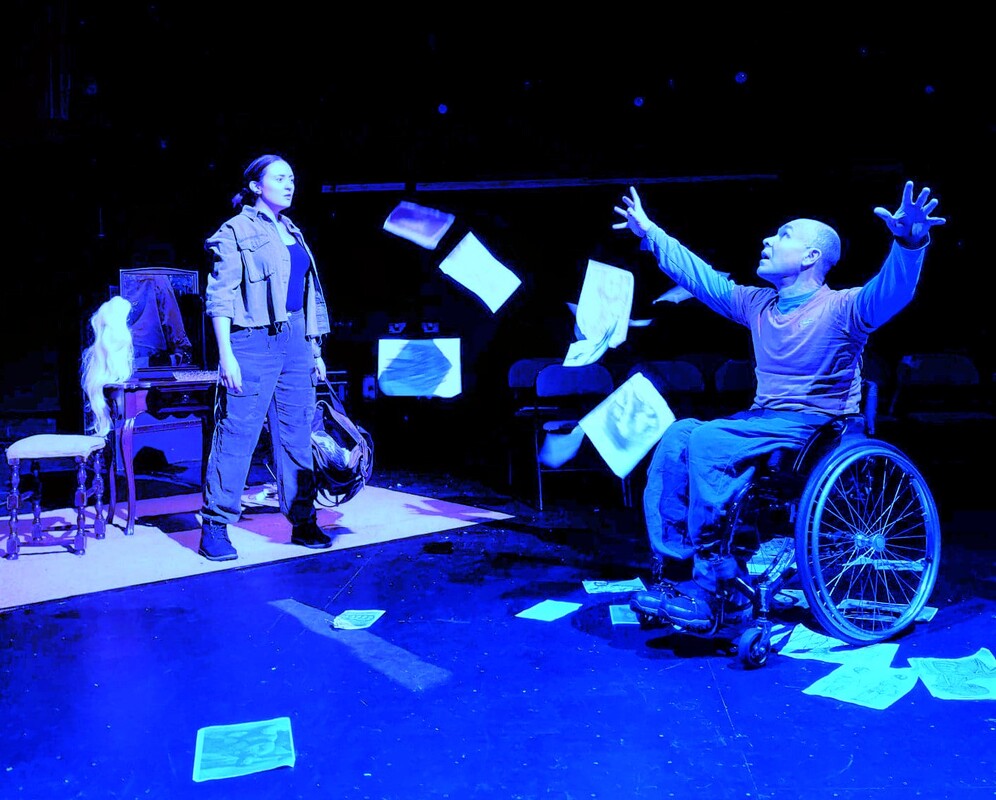
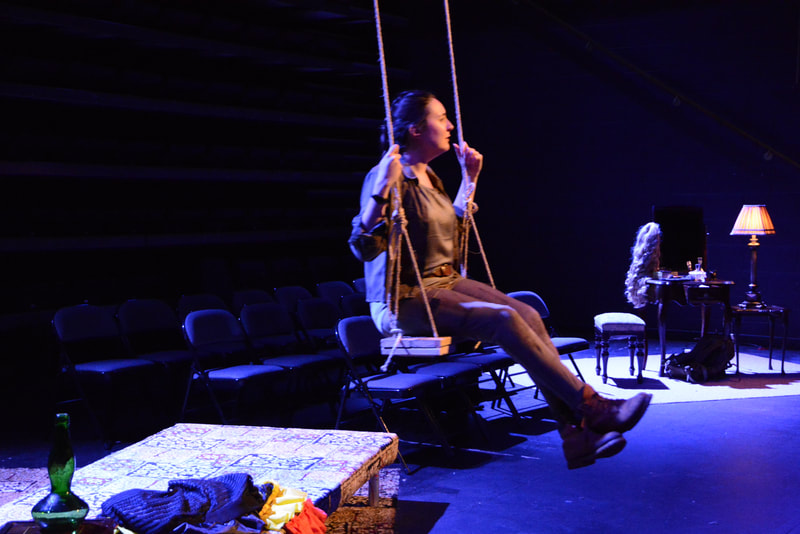
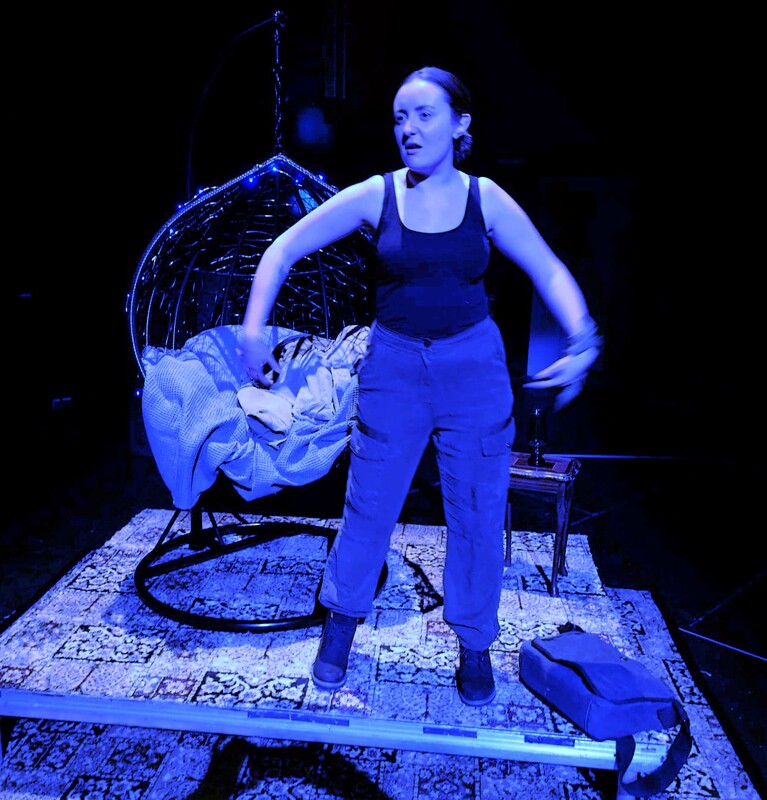
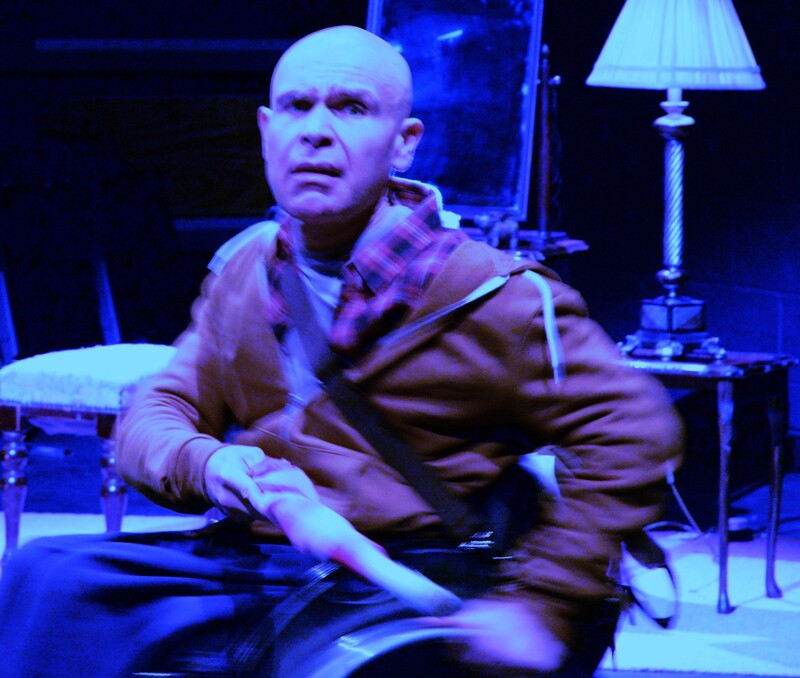
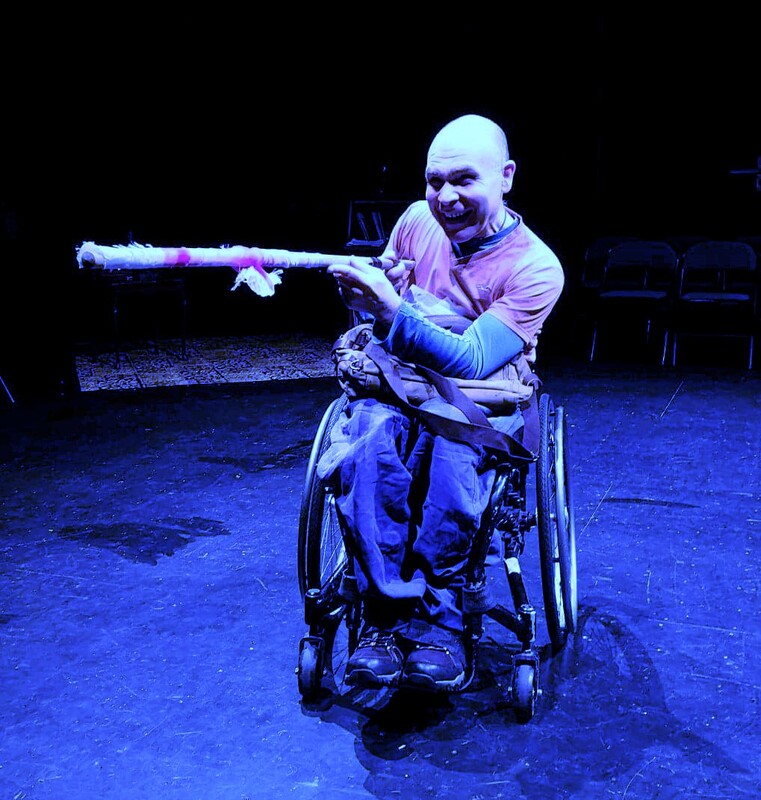
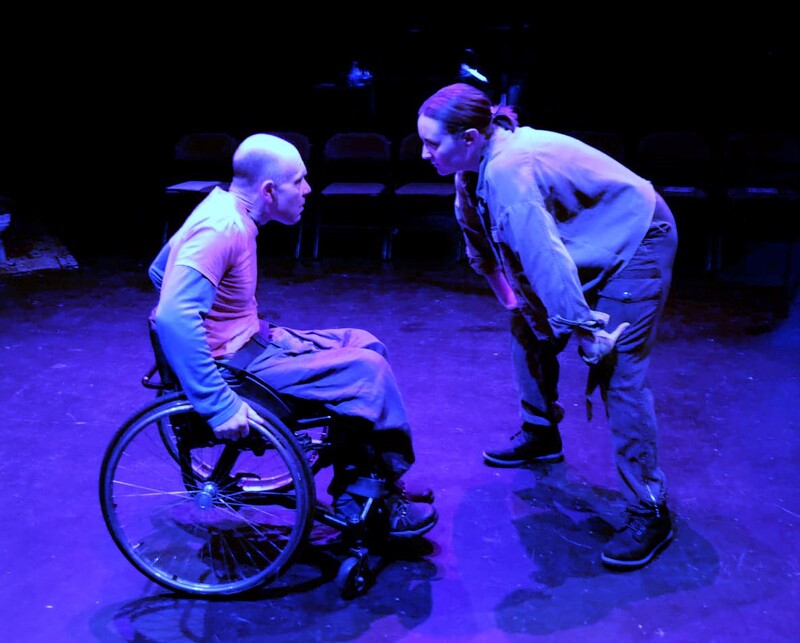
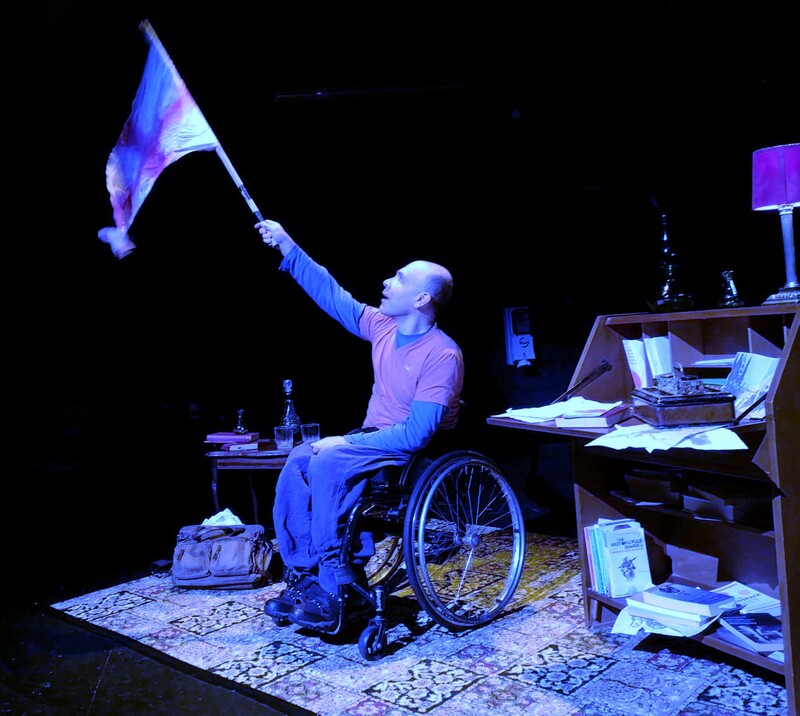
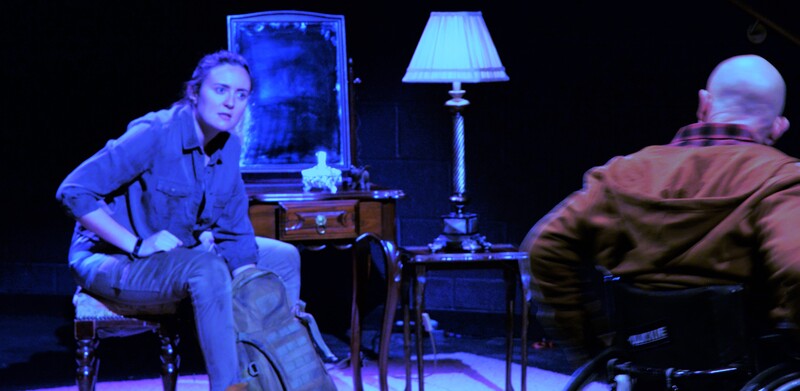
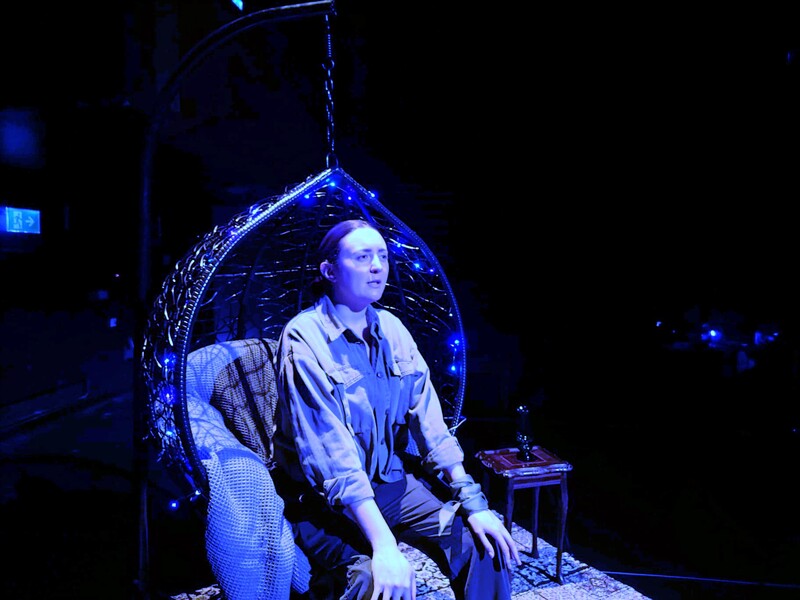

 RSS Feed
RSS Feed